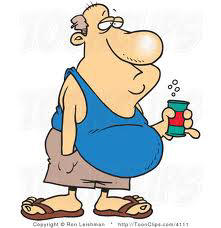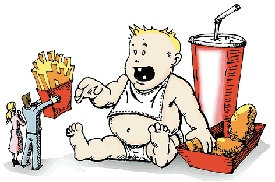Posted July 12, 2022.
So you are thinking of losing weight and switching to a healthier diet. Or perhaps you are trying to lose weight by just exercising? Good try! Here are a few issues to consider when thinking of doing so.
Eating and losing weight is a very complex issue. It is like a jigsaw puzzle that has a lot of connecting pieces to be put in place to see the big picture and likewise for one to be successful in losing weight.
Selecting and eating nutrient dense veggies has become a hot topic. For some time scientists have pointed out that we should consider eating paleo diets that include more vegetables, fruits and nuts and less animal and processed products. The food industry picked up on this and now prepares incomplete take-out salads. Many think falsely that going to the supermarket to get a salad will help them lose weight while they continue eating their junk foods.
But it is not easy to lose weight and change your diet when you are a food addict and do not realize it.
You might be reading and learning about nutrient density and which foods provide the most minerals, vitamins and proteins. This is good, but that is not where you need to start. All nutrition information will not make you successful in losing weight if you neglect to identify your addictions to food and other related lifestyle addictions.
 There is a theory that one usually has many different kinds of addictions and not just food. One addiction supports another! One needs to identify all these addictions in order to be successful in changing addiction to food. I would suggest you start by identifying all your addictions [smoking, coffee, alcohol, gambling, shopping, food,
watching late night TV]. List these on paper as evidence for your brain!
There is a theory that one usually has many different kinds of addictions and not just food. One addiction supports another! One needs to identify all these addictions in order to be successful in changing addiction to food. I would suggest you start by identifying all your addictions [smoking, coffee, alcohol, gambling, shopping, food,
watching late night TV]. List these on paper as evidence for your brain!
Do you watch TV soap operas or other programs late at night and deprive yourself of much needed sleep? Try skipping late night TV one or two times and go to bed early for a change. Doing so breaks a habit that may be indirectly linked to addiction. Breaking this addictive TV habit is a lot easier than a food habit and should give you confidence that addiction can be changed or stopped. Scientists point out that it may be that lack of adequate sleep contributes to food addiction.
Changing food addiction is much more complex than breaking the habit of watching late TV. Food addictions include sweets, drinks like coke, meats, cheeseburger, junk, snacks and processed foods [salted crackers, cooked meals, popcorn, potato chips and foods that stay on grocery shelves a long time]. This is a list that needs honesty and not subversion! Your mind-brain has been kidnapped by many of these foods and not realizing it, you are no longer in control of your eating destiny and life. These are not vegetables, fruits and nuts.
Addicted foods have a stronger impact on you than veggies. So once you accept and realize this, then you will have more success in changing and accepting veggies. Most addictions, such as drugs and junk foods, affect the brain's "reward circuit," causing euphoria as well as flooding it with the chemical messenger dopamine. A properly functioning reward system motivates a person to repeat behaviors such as eating while watching TV or drinking coffee or other drinks. Surges of dopamine in the reward circuit cause the reinforcement of pleasurable but unhealthy behaviors like eating junk foods with other behaviors, leading people to repeat the behaviors again and again. A side effect of major food addiction is having a continuous feeling to eat something all the time or like watching TV and munching on junk food. In this TV example you have three linked addictions: addiction to watch TV, snacking while watching TV and addiction to food. When you turn on your TV program, the TV triggers wanting a specific food to eat in your brain. Addiction is a time clock to eat more and more. When you get the thought to eat, drink some water, not soft drink or beer!Incidentally, since I became a pure vegetarian, I no longer have the hunger and desire to eat. The brain center that records addiction no longer has sugar, salt or fat to stimulate the brain to send out a hunger message. I now eat to live.
So deal with addictive habits first and then addiction to garbage foods secondly. You will need to gradually re-train your addiction center in the brain. It will take time and there is no best one way of doing this as everyone is different. It takes immense desire and discipline to change. To help you, pin on your refrigerator door a reminder statement like 'I want to change!' or ‘no beer’ or some similar words. Every time you go to open the refrigerator door, it is there to remind you not to eat junk foods.
So how do you give up addictions? Gradually or cold turkey? Every person is different and you may need to experiment. When I realized that I was addicted to sweets like donuts, I also realized that I drank coffee with donuts when I went for a coffee break. So I gave up my pleasure addictions to sweet donuts, coffee and coffee break all at the same time. I gave up three different but linked behavioral addictions. And all this, giving up three linked addictions, was surprisingly easy. As you can surmise, food addiction is related, linked, to many behaviors and not just eating a single food. If you are going to be successful in losing weight, you need to change all of these linkages; e.g. all sweets-junk foods, snacking or/and drinking beer while watching TV. Start the change by eliminating the behavior first.
But it was not easy for me to give up sweets like ice-cream, tapioca pudding, pie and chocolate cake. I went cold turkey with these as well but the good sweet comfort feeling still lingers in my mind to this day. So as it is with alcoholics, once an alcoholic, always an alcoholic. And so it is with food addicts. Once a food addict, always a food addict! I admit to myself that I am a food addict.
Once you get off food addiction, you then need strong discipline to stay off the junk foods forever.
 Nutrition and eating well is a difficult issue. The culture you are born into had your good intentioned mother introducing you early to the solid foods she and the family ate. At about age one year or sooner, she gave you food to taste. And it was taste that you used to determine whether to chew it or spit it out.
Nutrition and eating well is a difficult issue. The culture you are born into had your good intentioned mother introducing you early to the solid foods she and the family ate. At about age one year or sooner, she gave you food to taste. And it was taste that you used to determine whether to chew it or spit it out.
I recall many years ago that I perceived becoming nutrition wise when searching food/nutrition tables for vitamins, minerals and amino acids. Although early nutrition tables were originally designed for people by the Department of Agriculture, today nutrition tables have been adapted for the food industry and not us humans. Tables give us limited and incomplete nutrition information. The tables neglect to mention sulfur, boron, antioxidants, anti-inflammatory, astaxanthin and many other rainbow phytochemicals.
Addictive taste comes from salt, sugar and fat in food. Taste is what the child's brain and you learned to recognize early in life. The point being made here is that we, as adults, select and eat food that tastes good and not because it is what the body needs or that it is nutritionally good for us. This is an important issue to understand. It is your addiction to a food that is linked to how the food tastes. So keep this in your mind while wanting to stop an addiction to a food .... and lose body weight.
Now let us get back to nutrition. Your physical body does not need food. Instead it needs the nutrients, fiber and energy in the food. Different foods have varying amounts of different vitamins, minerals, proteins, phytochemicals and fiber. No one food has it all in the proper amount, except perhaps SuperFood supplement that comes from ocean algae. So we need to be very selective in combining a half dozen or so vegetables along with fruits, seeds and nuts. When the best nutrient veggies are eaten together, they compliment each other. Their package has the proper balance and amount of vitamins, minerals, phytochemicals, antioxidants and anti-inflammatory.
Alert: When you lose body weight there is the danger of disrupting the electrolyte [sodium, chloride, potassium, phosphate] balance and water in your body. Severe electrolyte imbalances can cause serious problems such as coma, seizures, and cardiac arrest. Best to lose body weight under a medical doctor's care.
Fresh plant food is genetically programmed to synthesize minerals from the soil. Each plant makes different quantities of nutrients with sunlight photosynthesis. One plant may synthesize a small amount of a mineral while another plant may make a lot more of the same mineral. Eating both plants together balances out the minerals and other nutrients.
So the total nutrient package each day needs to include a variety of select rich 5-6 veggies, as well as fruits, nuts, seeds and fiber; and, yes, you need sunshine exposure for the body to synthesize hormone D. Your body also synthesizes over a 1000 mineral-proteins. Notice that I did not mention any specific mineral, vitamin or protein, as nutrition tables give us very little useful information.
Eat what your body needs, not what tastes good. Taste is deceptive and gets you in relapse trouble!
Once you switch to a veggie diet, you need to stabilize it by not going back to snack your previous junk foods. And stay away from behaviors that trigger feelings to eat more addictive food.
You do need to exercise regularly to make your heart, muscles and lungs strong. Exercise helps to digest food. But to lose weight you need to change your diet as exercise by itself is not an efficient way to lose weight. You need to change from a Standard American Diet [SAD] to a vegetarian diet supported by regular exercise.
Enjoy eating as mother nature intended it to be. Be smart!
Wooo! I have said a mouthful.